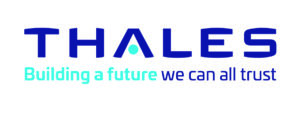
Thales is one of the largest electrical and IT solutions providers in the world, active across a range of industries including aerospace, defense, transportation, and more. So it’s no wonder that the France-based multinational is also one of the biggest names in biometrics, offering a number of different solutions in the field. The company is involved in the development of biometric payment cards and in biometric airport security screening; it offers biometric kiosks for border control; and it even offers its own selfie-based identity verification solution.
But with the big news that government authorities in France had contracted Thales to provide biometric screening solutions to secure the border of the Schengen area, that was the natural starting point in a new interview between Thales Identity and Biometric Solutions VP Youzec Kurp and FindBiometrics Founder Peter O’Neill. From there, the two went on to discuss how the impact of the COVID-19 pandemic will continue to transform the travel experience, the importance of protecting sensitive PII, and various aspects of the ongoing trend of digital transformation. Kurp also some thoughts on how increasing government regulation will influence the trajectory of biometric technologies.
Read the full interview below for some key insights from an executive with one of the true giants of the global biometrics industry:
Peter O’Neill, Founder, FindBiometrics: Let’s start with some big Thales news from France. In March, we learned that Thales will be working with the French Ministry of the Interior to help it meet the identity verification requirements for the upcoming Schengen Area Entry/Exit System. What role will biometrics play in this system and how do you expect that to change travel in Europe?
Youzec Kurp, VP Identity and Biometric Solutions, Thales: Indeed, Peter, the Ministry of Interior in France has recently awarded Thales for the upgrade of its Schengen Entry/Exit System. And this is following the European mandate to all member states to upgrade their infrastructure by no later than May 2022, which as you may know is the deadline set by the EU. So, in this project, Thales will provide the complete content infrastructure for which we will incorporate multiple biometric technologies from Thales. This will be a multimodal solution relying on both fingerprint and face recognition as well. And this solution will play a key role and brings benefits to all stakeholders. So first of all, this will allow France to comply with the EU regulation. But also, to reinforce the overall security of the border crossing process with both robust, and I guess we’ll come back to that later on, but also an accurate ID verification and traveler authentication.
It will also obviously allow the French authorities to reduce their operational costs. And when it comes to the travelers themselves, it will improve the travel experience, making the border crossing experience faster and also smoother.
Last but not least, there are also benefits for both the airport operators as well as the airline companies. We expect that this will deliver operational efficiency gains as it will allow to process passenger flow faster, but also hopefully improve their customer satisfaction.
Biometrics are efficiently tackling the regular border crossing security requirements with automatic border control solution, or for instance, the Entry/Exit System kiosk. We also think it will bring a new world of opportunities again, for in particular airport operators and airline companies in order to enhance their customer relationship, but also for them to be in a position to offer new services. It will obviously provide, and this is of paramount importance in the current context, a touchless experience.
Peter O’Neill: It’s remarkable Youzec, how far and fast the changes have come especially when it comes to travel. And of course, when we talk about travel now, it’s unavoidable to not mention the effects of the coronavirus pandemic. How has Thales addressed the new challenges using biometric and identity technologies?
Youzec Kurp: Well, indeed, you’re right to highlight the fact that the COVID crisis is drastically affecting the travel industry currently. There is a huge drop of international travels in particular, highlighting the fact that the industry, as you may know, is not expecting a full recovery before 2024 or even 2025.
So, what we think today within Thales, and what we foresee, is that this crisis will, again, lead airport operators, but also airline companies to first make all required effort to restore, what I call “the traveler confidence.” And this is obviously related to a new traveling experience with a touchless approach. It should also lead them to drastically reduce their operational costs, and therefore further leveraging on new digital solutions, as well as to bring their customers new services.
Well before the pandemic context, Thales has been present as a company in the world of digital transformation. We were already well aware of the potential of biometric and ID verification solutions rising needs, that go actually far beyond the travel market ones. So I could mention the need to identify someone in the physical and in the digital world, but also the need to offer users a simple and fast way to be authenticated and therefore, get access to reserve a place, or goods or a service.
Now, coming back to your question, with the pandemic, new challenges, and therefore new opportunities have arisen. And I would like to highlight one that has been a new offer initiated by Thales called Fly to Gate solution, which actually relies on our unique set of digital and biometric technologies. The general principle of the software aimed at serving again, airport operators and the airline companies, is for the traveler first to register using, for instance, their official ID document, either an ID card or passport, to get a biometric digital credential. And this biometric digital credential will then be checked using facial recognition technology at every single touch point during each travel experience, whether this is for check-in, or for baggage drop, or for boarding, but also to access duty-free or even in-flight entertainment services.
So how did we customize or enrich this solution in the pandemic context? Well, on top of providing a touchless experience to travelers, we added some special COVID features. And I want to highlight two of them. The first one is facial recognition applied to people wearing a sanitary mask. This technology has been recently demonstrated by Thales to be not only robust, but also to offer very high accuracy. And this in particular is thanks to the usage of deep neural network that allows us to reach almost the same accuracy as with people not wearing a mask.
The second one is that we’ve been leveraging on some other Thales group expertise to develop a thermal imaging system coupled with AI which actually allows us to monitor the temperature of people, but also for instance, of the airports or airline staff in a crowded place such as an airport, a port, or obviously the borders.
This specific camera-based system is actually being piloted by the NHS in Glasgow, and we are obviously seeing relevance for other industries such as the travel one. And we see many similar opportunities currently emerging all across the world, whether it’s in Asia or in Europe, and obviously in North America as well.
Peter O’Neill: Well, Youzec, thank you very much for describing that. I’m so impressed with the speed at which these solutions have come to market, the facial mask recognition and the thermal checks. It’s quite remarkable really, and how, as you’d mentioned, the technology has really come such a long way in such a quick amount of time.
Thales has biometric solutions deployed in more than 80 countries around the world. What are some of the special nuances that need to be observed when deploying biometrics across different cultures?
Youzec Kurp: Thank you for this question, Peter. This is a key topic and of particular interest to Thales. And you’re right to highlight the fact that we are currently serving close to 100 different governments in the world. This is actually being achieved through more than 200 different active programs, most of them are using biometric technology. The biometric technology, as you know is a very powerful one, essentially using personal data. And indeed, requires to be contextualized, depending on not only the local environments, but obviously, the culture and of course, the regulations in France and in the various different countries that we serve. So, whatever the country, we are positively welcoming regulations and shaping a clear legal framework for biometric application and services and this is in order to build the trust we all need in the technology.
We think it’s essential to show people that boundaries are set to protect their data and obviously, their privacy rights. I think we have good examples today of the GDPR framework that has been set in Europe, but also, as you may know, the upcoming European regulation related to artificial intelligence and facial recognition. What I wanted to highlight is that at Thales, as a responsible technology company, we think that we have corporate responsibility to ensure that some basic principles apply when using biometric technology. And if I could highlight some of them, I would start by the fact that the technology usage must be transparent. What we mean by transparent is that individuals should be aware that they are being identified or authenticated by a service using biometrics. So that’s, for us, one of the first requirements.
The second one is for the technology to be robust. What I mean by robust, is that it must provide reliable results, while ensuring that all data collected, and this is a must obviously, that it is securely stored, but also securely used and permanently deleted when required.
Whatever the future may bring, as the technology is required to handle sensitive and personal data, one key point is also to ensure that the use of the technology is as well justifiable or understandable. For instance, it’s easier to justify the use of the technology to find a missing child in real time in a crowd, or to secure a voter list for an election than using the technology for marketing purposes. So that’s the reason why we think the usage of the technologies should again be justifiable.
And finally, we also think that biometric usage should be ethical. And indeed, like any other technology, I would say biometric is neutral. What is at stake is the use case and the risk of unethical usage, for sure.
So, to conclude on your question, we see a growing worldwide appetite for the technology, and it for sure creates some debates here and there. And we have our own debates in France, for instance, which for us demonstrates the need, I would say, to educate and also to explain the technology and to discuss what are the boundaries that we need to set around this technology. And I think that it’s not only a good thing, but it will require us to move forward as these fears need to be put on the table to support the definition of the required framework to use the biometric technology.
Peter O’Neill: Youzec, we just finished our 18th Annual Year in Review, where we talk about a lot of the challenges in the industry, what are the important topics and I must applaud you and your company for what you are doing in regard to privacy, data protection and transparency. These were critical issues in our Year in Review this year.
With the rapid shift to remote and online channels for work in government services, as we’re seeing across the world, we are witnessing a rise in synthetic identity fraud. How has digital transformation changed the need for background checks and other identity proofing measures?
Youzec Kurp: Well, indeed you’re right to say that with the digital transformation, the stake today is to be able prove who you are in the digital space. And by the way, this is also enforced by the worldwide Know Your Customer regulation trend that for example is being applied to the banking industry or to mobile network operators. So whereas biometric solutions have been dramatically boosted by the artificial intelligence and deep learning algorithms that I mentioned previously, and by the way, in particular, to support liveness detection, which remains one of the key topics when it comes to, in particular facial recognition, it’s fair to say that we see regularly, new fraud and attacks, as the technology is used more and more widely, although it is used in different applications.
At Thales, I am able to say that it’s business as usual for us, because we’ve been experiencing the same situation within the smart card industry and overall in terms of cybersecurity. A clear responsibility for a technology supplier is to ensure that we are always two steps ahead of the fraudsters. This is the reason why we monitor on a continuous basis the new attacks being developed, and that we invest into an advanced R&D program to always provide our customers with state-of-the-art and highly reliable and secure technologies. As part of this continuous improvement principle that we have applied to ourselves for decades now, we also get all our solutions to be assessed and certified by independent security laboratories to ensure that we have third-party proof of the commitment that we are undertaking with our customers.
And this policy applies, of course, to our ID documents solutions, which are by the way quite often the root for your digital ID, but also to our biometric machine solution, as well as to our ID verification solution. And I would say from this perspective, I think Thales is in a unique position, given the combination of values, different cybersecurity expertise, given the role to build a highly secure solution to maintain it at state-of-the-art, and therefore, to allow us to guarantee to our customer that they can rely on secure and continuously updated solutions.
Peter O’Neill: Let’s talk a little bit more about digital transformation. What role do you expect biometrics to play as the factors we’ve been discussing here start to affect government service like voting and benefits, applications, things like that?
Youzec Kurp: Biometrics are obviously an essential technology to offer solutions that provide both security but also convenience, and therefore to be in a position to bridge both the physical and the digital world. What I wanted to highlight first is that the technology is obviously already widely deployed, and I’m thinking about all the ID and passport programs that Thales is currently operating where biometric technology is a de facto technology now. It’s also obviously very well deployed within all law enforcement applications. But you’re right to highlight the fact that we foresee a strong market acceleration in new spaces, in the public and the private spheres.
You highlighted voting or voter registration and authentication, especially in the emerging countries, which already strongly relies on biometric technology. And Thales is involved in many voter registration programs all across the world, where biometrics are actually used to ensure the transparency of the democratic process by building a solid and robust voter list, but also to securely authenticate voters on the election day. We can also expect that the next step will be remote biometric authentication which will facilitate remote voting capabilities.
I also wanted to highlight one of the key United Nation programs called Sustainable Development Program, which is aimed at delivering everyone with a legal identity by 2030 and this for the creation of foundational ID platform. We see here a unique opportunity to leverage biometric technology to all citizens all over the world, not only to claim their simple rights, but also to take further benefit of, for instance, social grants or health services.
Outside of the public and the government markets, we also see a tremendous market acceleration in the private sector with a growing need for service providers to check the identity of their consumers to securely deliver their goods or services. And obviously, this market has been facing significant acceleration as a consequence of the current pandemic context. And as I mentioned previously, the pandemic situation has also brought another need for, in general, touchless or touch free experiences. And this will be ideal to gain consumers trust, to come back into stadiums, for instance for large events or simply to travel.
Peter O’Neill: What can we expect to see next from Thales?
Youzec Kurp: Well, maybe as a conclusion, there are a few things that I want to highlight. Overall, we foresee a bright future for the biometric technology and in particular to provide governments, but also the private sectors, means to securely interact and deliver new services to their citizens or their customers.
As a new technology, I would say, biometry is inherently neutral. And what is at stake here is the ethical usage. Regulation and public authorities have a key role to play in unleashing the full potential and acceptation of the biometric technologies. And we think at Thales that we also have, as a new technology supplier, a responsibility from this perspective, and we think that further adoption of this technology will require to be transparent, to educate, to debate, and to define what are the required legal frameworks in order for service providers as well as users to deploy and use the technology in mastered environments in the way that they feel secure using it.
This is not only the duty of the public authorities. I think as technology providers, but also service providers, we also have a key role to play as part of our corporate responsibility.
I also wanted to highlight the involvement of Thales in the Secure Identity Alliance in order to help to define some industry framework when it comes to identity and biometric technology.
As a conclusion, I wanted to highlight that, at Thales, we are committed to providing our customers with security and state-of-the-art solutions, but also to ensuring that our technology is sticking to proper values and roles associated with this. This is the reason why Thales is very active today at defining ethical uses for digital transformation, artificial intelligence, but also biometrics. So, what is at stake for Thales today and for the industry is to build a future we can all trust.
Peter O’Neill: Well, Youzec, thank you so much for a very enlightening conversation today. I thoroughly enjoyed your views. And thanks again for taking the time to speak with us today.
Youzec Kurp: Thank you, Peter, for giving us the opportunity to share our perspective on the biometric market and technologies and what is at stake for industry on this topic.








Follow Us